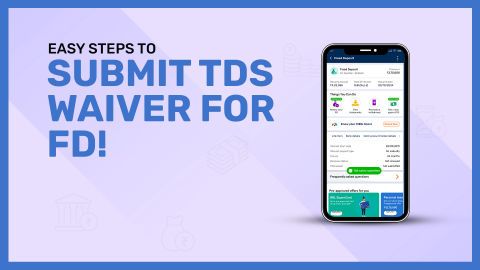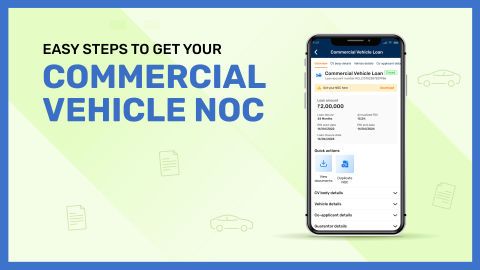What is business loan settlement?
Settling a business loan is a critical step toward achieving financial stability and ensuring smooth business operations. A business loan settlement refers to the process of repaying the outstanding loan amount, including any interest and penalties, to close the loan account. This process involves reviewing the loan agreement, calculating the remaining balance, negotiating settlement options with the lender, and making the final payment.
A well-planned loan settlement can help improve your credit score, reduce financial liabilities, and allow you to reinvest in your business. It is essential to understand the necessary documents required to avoid delays and ensure a hassle-free process. Whether you aim to foreclose the loan early or repay it per the agreed tenure, knowing the correct steps can save both time and money. This guide provides a comprehensive breakdown of settling your business loan efficiently and avoiding any financial setbacks.
Steps to settle your business loan
1. Review your loan agreement
Examine the loan tenure, interest rate, and repayment terms.
Identify any foreclosure or prepayment charges.
Understand the penalties for late payments or missed EMIs.
Verify the conditions for loan closure as per the lender’s terms.
2. Calculate the outstanding loan balance
Request a loan statement from your lender showing the pending balance.
Factor in any accrued interest, penalties, or additional charges.
Check for any prepayment discounts offered by the lender.
Confirm that your calculations match the lender’s final settlement amount.
3. Contact your lender for settlement options
Get in touch with your bank or financial institution.
Discuss available settlement plans or discounts on outstanding dues.
Clarify the foreclosure charges if closing the loan early.
Confirm the preferred payment method and deadline for settlement.
Obtain a written confirmation of the agreed settlement terms.
4. Pay off the remaining loan amount
Choose a suitable mode of payment (online transfer, cheque, or bank draft).
Complete the payment as per the settlement agreement.
Secure a payment acknowledgment receipt from the lender.
Request a No Dues Certificate (NDC) as proof of loan closure.
Ensure that the lender updates your credit report to reflect the loan closure.
Documents required for settling your business loan
1. Loan agreement document
Original loan agreement provided by the lender.
Contains all terms and conditions related to loan repayment.
2. Loan repayment receipts
Proof of all past EMI payments.
Helps verify the total amount paid and outstanding balance.
3. Identity proof
Aadhaar Card, PAN Card, or any government-issued ID.
Necessary for borrower verification.
4. Address proof
Utility bills, rental agreement, or passport.
Confirms the registered business or borrower’s address.
5. No Dues Certificate (NDC)
Issued by the lender post full loan repayment.
Confirms that there are no pending dues or obligations.
6. Foreclosure statement (if applicable)
Provided by the lender for early loan closure.
Specifies the final foreclosure amount and applicable charges.
7. Bank statement (if required)
Proof of final loan settlement payment.
Ensures the transaction has been successfully processed.
8. Business registration documents (if required)
Incorporation certificate, GST registration, or trade license.
Required for business loan verification and settlement.
9. Tax documents (if required)
GST returns, ITR filings, or other relevant tax papers.
Helps in validating financial transactions related to loan repayment.
By following these steps and ensuring you have the required documents, you can settle your business loan smoothly, avoid financial complications, and secure your business’s financial future.
Common challenges when settling a business loan
High foreclosure charges – Some lenders charge high fees for early repayment.
Incomplete documentation – Missing paperwork can delay the settlement process.
Negotiation difficulties – Lenders may be unwilling to offer discounts on outstanding dues.
Financial constraints – Business cash flow issues may make lump-sum repayment difficult.
Credit score impact – Settlement may affect your credit score if not handled properly.
Discrepancies in loan statement – Errors in outstanding balance calculations can lead to disputes.
Delays in No Dues Certificate (NDC) – Lenders may take time to issue the final clearance certificate.
Legal complications – Defaulting on payments before settlement could lead to legal action.
Advantages of settling your business loan early
Interest savings – Paying off the loan early reduces the total interest paid.
Improved credit score – A settled loan enhances your creditworthiness for future borrowing.
Reduced financial burden – Eliminates monthly EMI obligations, freeing up cash flow.
Better business growth – Allows reinvestment into business operations without liabilities.
Lower stress levels – Financial freedom leads to a stress-free business environment.
Higher loan eligibility – Clearing existing debt improves chances of securing new loans.
Avoiding late payment penalties – Settling early prevents extra charges on delayed payments.
Stronger negotiating power – Businesses with no outstanding loans have better credibility with lenders.
For more details on checking your loan status, visit bajaj business loan status.
To download your loan statement, visit business loan statement.
By following these steps and ensuring you have the required documents, you can settle your business loan smoothly, avoid financial complications, and secure your business’s financial future.
Conclusion
Settling a business loan is a significant financial decision that can provide long-term benefits. By carefully reviewing your loan agreement, calculating your outstanding balance, and consulting your lender for the best settlement options, you can ensure a hassle-free process. Preparing all the necessary documents in advance can prevent delays and simplify the closure of your loan account. Successfully settling your loan improves your credit score, eliminates financial burdens, and enhances your business’s growth potential. Whether you choose to complete the repayment as per schedule or foreclose the loan early, taking the right steps ensures financial security and stability for your business.




